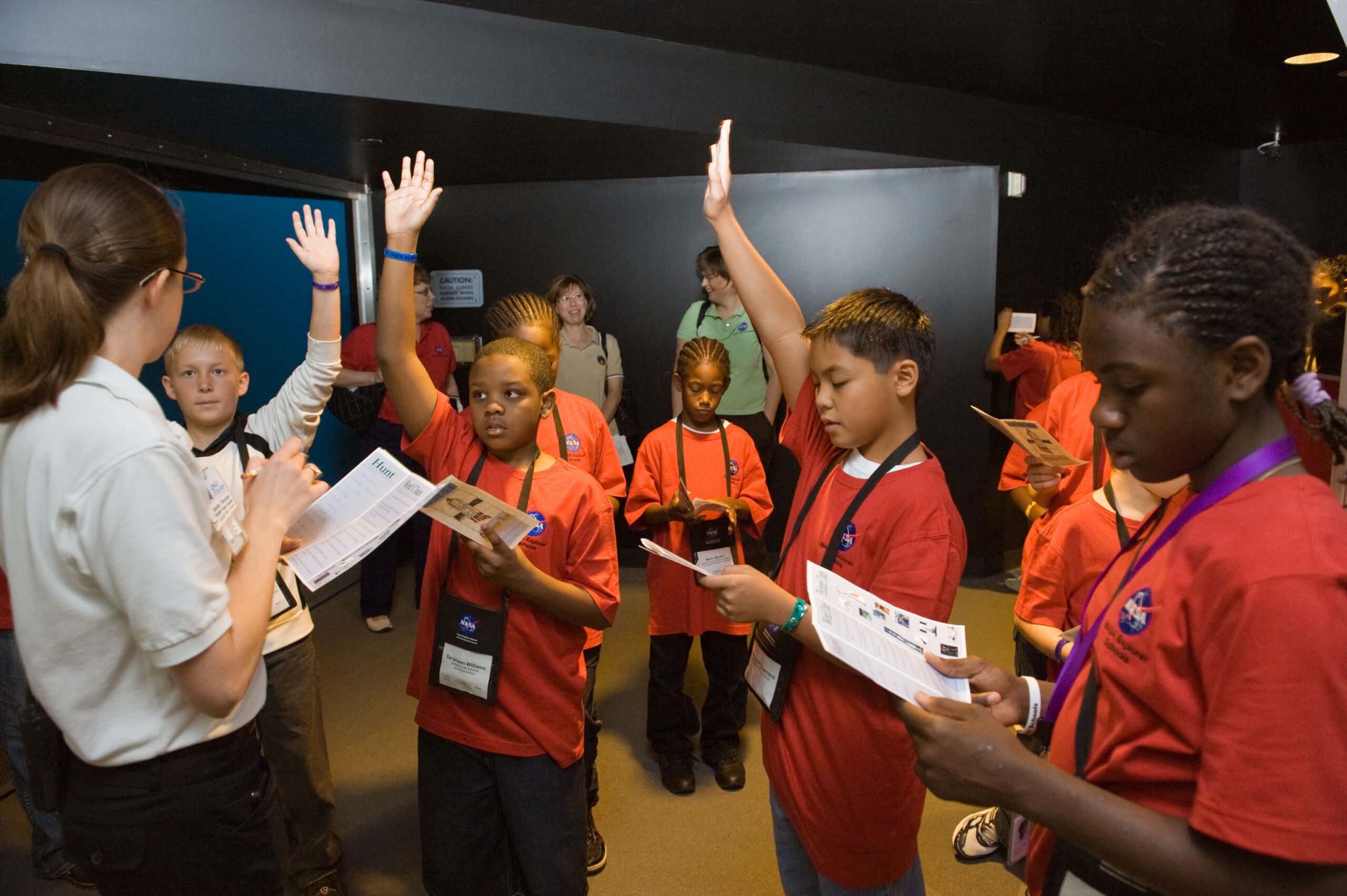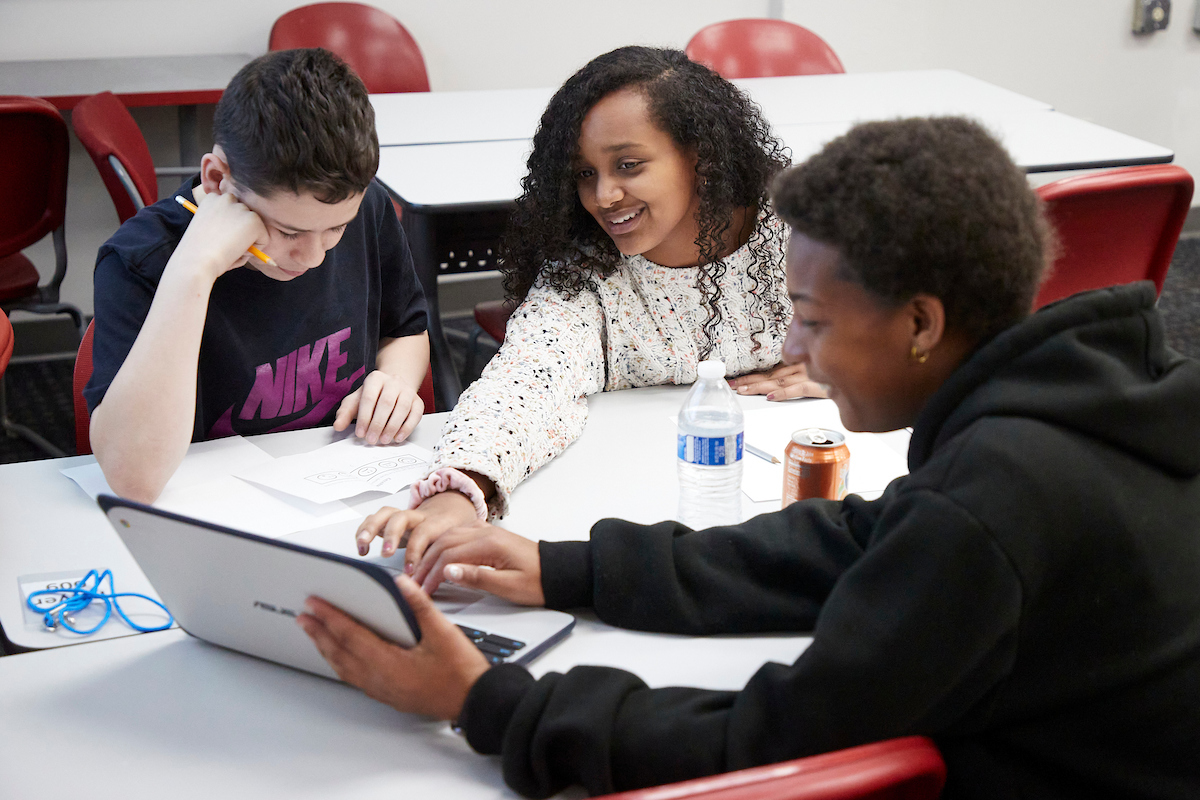Projects
The CREA team works with schools and districts in the state of Nevada and beyond, helping them assess and evaluate programs and initiatives designed to improve education. Here are a few current and past projects.

Evaluating Nevada’s Pupil-Centered Funding Plan via SLDS
In collaboration with Nevada Department of Education, CREA is conducting a four-year study funded by the Institute of Education Sciences (IES). Using the newly modified Statewide Longitudinal Data System (SLDS), CREA will conduct an in-depth evaluation of trends in school-level per-pupil expenditures over time. Project outcomes will improve understanding of the shift in school-level expenditures following the transition to Pupil-Centered Funding Plan (PCFP) that will allow Nevada policymakers to make informed decisions about school finance resource allocation.

NVFORWARD
CREA provides evaluation services for NVForward: Innovative Solutions to Address Nevada’s Teacher Shortage, a five-year program within UNLV’s College of Education funded by the U.S. Department of Education’s Hawkins grant. By recruiting and supporting school staff from diverse communities and preparing them to become teachers in local schools, this pioneering program addresses teacher shortage as well as diversity and representation in higher education. CREA will assess the progress of project activities and outputs.

NSF CAREER: Identifying, Enabling, and Supporting Antiracist Science Teaching
CREA provides evaluation services for the NSF Career: Identifying, Enabling, and Supporting Antiracist Science Teaching research project funded by the National Science Foundation. CREA will evaluate how the professional development offered within the project supports the formation of antiracist science teaching identities.

CCSD Title I Evaluation: Transformation Network
CREA continues to support external evaluation efforts for the Clark County School District Title I programming. For the 2024-25 school year, the CCSD Transformation Network, a collaborative network of 23 elementary schools committed to serving Southern Nevada’s most vulnerable students. UNLV CREA will analyze the impact that the district’s programming has on students.

The Minority University Research and Education Project (MUREP)
CREA provides evaluation services for the National Aeronautics and Space Administration-funded research project, Enhancing IDEAS at a Minority- and Hispanic-Serving Institution Through Research and Education for Undeserved Students in Partnership with NASA. In collaboration with scholars from UNLV, the University of Florida, and the NASA Johnson Space Center, the research project endeavors to develop and implement STEM curricula that increases diversity, equity, inclusion, accessibility, and academic success.

HSI-Hubs: Cultivating Culturally Relevant and Responsive STEM Environments
CREA provides evaluation services for the National Science Foundation-funded research project, HSI-Hubs: Cultivating Culturally Relevant and Responsive STEM Environments. In collaboration with scholars from the UNLV Colleges of Education, Engineering, and Sciences, the project endeavors to develop a Resource Hub by and for Hispanic Serving Institutions to support student success.

Futuro Project: Teachers Transforming Nevada’s Children and Families
CREA provides evaluation services for the U.S. Department of Education-funded Futuro Project. In collaboration with scholars from Nevada State College, this research project efforts to provide evidence-based recommendations for teaching foundational reading skills, including increasing understanding of early childhood classrooms and teaching practices and improving the school readiness of EL children.

Improving Undergraduate STEM Education: Hispanic-Serving Institutions (HSI Program)
CREA provides evaluation services for the National Science Foundation-funded research project, Improving Undergraduate STEM Education: Hispanic-Serving Institutions. In collaboration with scholars from UNLV and the College of Southern Nevada, the research project endeavors to enhance the quality of undergraduate STEM education and increase the recruitment, retention, and graduation rates of students pursuing associate’s or baccalaureate degrees in STEM.

An Evaluation of Nevada’s Pupil-Centered Funding Plan
In conjunction with the shift to the new pupil-centered funding formula, the Nevada legislature approved general fund appropriations for an external evaluation to determine the impact of transferring certain state K-12 categorical programs (i.e., Zoom, Victory, and SB 178) into the PCFP and to measure the effect these transfers had on schools and students that the K-12 categorical programs previously targeted. In this report, CREA presents the results of our evaluation of the impact of the Nevada Pupil-Centered Funding Plan.

CCSD Title I Evaluation: Innovative Middle Schools
CREA investigated the impact of teacher recruitment and retention bonuses and performance compensation on academic and non-academic outcomes for CCSD’s Innovative Middle School Program, a three-year pilot program designed to improve student achievement and retain teachers invested in growing and sustaining a positive culture in schools

Supporting Black Student Achievement in Nevada: Opportunities for Growth
In collaboration with the Nevada Department of Education, CREA identified “pockets of excellence” in the state of Nevada, defined as schools experiencing marked growth in improving Black student achievement on the state’s standardized exams. We then conducted in-depth interviews with principals from 10 of those schools to understand evidence-based practices leveraged by school leaders to help improve Black student achievement.

CCSD Title I Evaluation: FEV Tutoring
CREA continues to support external evaluation efforts for Clark County School District programming in Title I schools. In 2023-24, CREA is evaluating the impact of CCSD’s pilot tutoring program—FEV Tutoring, a comprehensive tutoring program that provides 1:1 or small group tutoring with subject matter expertise—on student outcomes at 11 middle schools.

Nevada Portrait of a Learner
CREA supports the Nevada Department of Education initiative, in partnership with Ed.Xtraordinary, Portrait of a Nevada Learner pilot program. School communities across Nevada begin to explore, align, and evolve best practices for learner-centered experiences, using the Portrait of a Nevada Learner as a roadmap.





